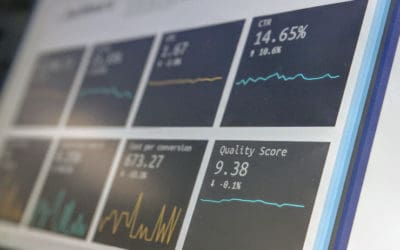Editor’s Note: You know I am always talking about investing. Do it early and often. So today’s guest post from Leif Dahleen, MD of Physician on Fire will help you determine if VTSAX and do-it-yourself investing are right for you.
The Vanguard Total Stock Market Fund, ticker symbol VTSAX, gets a lot of attention and love from authors and investors alike. But why VTSAX?
Is it the strong past performance?
Maybe it’s the low fees.
Do bloggers make money promoting it?
I’ll dig into what VTSAX actually is and how it’s performed while discussing what makes the “Vermont Saxophone” such a popular choice for do-it-yourself investors.
Why VTSAX?

What is VTSAX?
VTSAX is a mutual fund, more specifically an index fund, comprised of over 3,600 publicly traded companies based in the United States. As index funds do, by definition, it is designed to track a benchmark. The chosen benchmark is the CRSP US Total Market Index.
It doesn’t follow the index perfectly, but stocks are added and dropped almost in parallel with the index.
The Center for Research in Security Prices (CRSP), an affiliate of the University of Chicago’s Booth School of Business, does have some inclusion and exclusion criteria to be considered “investible,” so the index (and thereby VTSAX) doesn’t actually hold every stock traded on the New York Stock Exchange (NYSE) or Nasdaq.

There are around 6,000 securities exchanged on either the NYSE or Nasdaq, and the CRSP index, as of 12/31/2020, contained 3,622 stocks. VTSAX on that same date held 3,634 stocks. Notably, IPOs considered are either fast-tracked and added after 5 days or added after 20 days.
VTSAX has been invested in Tesla since 2010. If you’ve owned the fund since then, you’ve benefitted from the meteoric rise in the value of those initial shares because the index is cap-weighted. The stock that once trailed Steve Madden shoes, Jack in the Box, and movie theater chains in market capitalization is now one of your top ten holdings in the fund.

The same is true of Apple, Microsoft, Starbucks, and pretty much any success story you can conjure up of a small cap that grew up into a dominant large cap stock.
Of course, a VTSAX investor has also owned the losers and the stocks that stagnate for years. Yes, a VTSAX investor held Enron, which famously dropped to zero, although it was booted from the indices before it flatlined completely. As mentioned above, a stock has to be considered “investible” to be included. If you’re interested in those criteria, I’ve got a 70-page pdf file for you to read.

Learn how to better manage your student loan debt, and explore refinancing to a lower rate with cash back offers up to $750!Student Loan Resource Page
VTSAX Statistics
We’ve established that the fund own over 3,600 funds, representing nearly 100% of the investible stocks as determined by CRSP and in the neighborhood of 60% of all NYSE or Nasdaq listed U.S. companies. The index is managed by portfolio managers Gerard C. O’Reilly and Walter Nejman.
Looking at the top 10 companies, which currently constitute 22.3% of the total value of the fund, you’ll see a technology-heavy list of household names.

After technology, the next most heavily weighted sectors are consumer discretionary, industrials, health care, and financial, in that order.

The expense ratio is 0.04%, or 4 basis points, which means for every $100,000 invested, the fund will subtract a total of $40 from your balance each year. That’s quite low, but it’s no longer the lowest in the business, as we’ll cover a bit later.
To invest in VTSAX via Vanguard, you must invest a minimum of $3,000, and additional investments can be made in $1 increments.
It’s dividend yield, based on the trailing 12 months as of January, 2021, is 1.41% with 96.6% of those being qualified dividends, making it a very tax-efficient fund to own in a taxable brokerage account.
VTSAX is the world’s first trillion-dollar fund. Between it its other share classes, including the ETF share class, VTI, $1.1 Trillion is invested in the Vanguard Total Stock Market Fund.
VTSAX Performance
Celebrating its 20th birthday on November 13th, 2020, VTSAX has survived both the dot-com crash of the early 2000s and the Great Recession later that same decade. There was also that brief insult in 2020 as the pandemic wreaked havoc on life as we knew it.
The lifetime performance of the fund since its inception on 11/13/2000 to the end of 2020 is a compound annual growth rate of 7.82%.
When the “lost decade” is removed from the picture, the returns look rosier, with 1-year returns of nearly 21% and 3, 5, and 10-year returns in the 14% to 15% range.

If you look at the year-by-year returns over the last 16 years, a time period that includes the Great Recession, you’ll see two years of negative returns with 2008 at -37% being the worst year by far. 13 of those 15 years, VTSAX gave positive returns of 0.4% to 33.5%.

There is a strong correlation between the large-cap only S&P 500, but the inclusion of mid-cap, small-cap, and micro-cap stocks in VTSAX have given it a decent edge over the 20+ years it’s been around with a total return of 232% for VTSAX versus 189% for the S&P 500 index from November of 2000 to January of 2021.

VTSAX in the Blogosphere
In The Simple Path to Wealth, JL Collins recommends a 100% VTSAX portfolio for his daughter and other young investors who are just getting started in their careers. The fund is also the largest holding in his own portfolio, at 76% of the total as of 2018.
Jeremy & Winnie of Go Curry Cracker had about 50% of their multimillion dollar portfolio in Vanguard’s Total Stock Market Index when last updated in 2020.
ChooseFI lists VTSAX as one of the most recommended funds among listeners and among their favorite funds. Listen in to a few episodes, and you’re bound to hear the ticker symbol before long.
Mr. Money Mustache touted VTI (the ETF share class of VTSAX) as the “one king index fund” that makes investing easy in one of his first blog posts back in May of 2011.
You can even buy VTSAX tee shirts.
What about me? Although I’ve donated a good chunk of my nicely appreciated shares of VTSAX, it remains my largest holding by far, representing more than half of the money in our taxable brokerage account.
I haven’t written about the fund by itself before today, but I’ve frequently mentioned it in my writings on the three-fund portfolio.
The trillion-dollar fund is clearly a favorite among investors, bloggers, and podcasters alike.
Alternatives to VTSAX
Are there other funds like VTSAX? You betcha.
Other companies offer total stock market index funds. Schwab has SWTSX, a $13 billion fund with an expense ratio one basis point cheaper than VTSAX at 0.03%. It follows the Dow Jones US Total Stock Market Index, which I consider to be not “substantially identical” and a good tax loss harvesting partner for VTSAX. I own it in my solo 401(k).
Fidelity has two total stock market funds. FSKAX has an expense ratio half that of Schwab’s fund, at only 0.015%, and tracks the same Dow Jones index, holding 3,532 holdings at the end of 2020.
Fidelity’s ZERO total market index fund, FZROX, costs nothing to own (a 0 expense ratio), follows a proprietary Fidelity index, and held just 2,442 holdings at the end of 2020, or about 2/3 that of the major total US stock market indices.
You can also buy exchange-traded funds (ETFs) that track the total US stock market indices. VTI is the ETF version of VTSAX from Vanguard, and it has a slightly lower expense ratio of 0.03%.
An ETF offered by iShares tracks the Core S&P Total US Stock index holds 3,597 stocks, and also has an expense ratio of 0.03%.
In short, ETFs differ from mutual funds in that they can be traded throughout the trading day, cost a slight premium above their current value (the bid/ask spread), and in most cases, are slightly more tax-efficient than mutual funds. Vanguard mutual funds are an exception to this rule, thanks to a patented fund structure that gives their mutual funds the same tax efficiency enjoyed by their ETFs.
Read more on the differences between mutual funds and ETFs here.
Why Choose Vanguard?
I will tell you this. It’s not because bloggers are compensated for recommending it. One way Vanguard keeps its costs low is by keeping a reasonable advertising budget. I have sent a lot of investors to Vanguard, and I haven’t received a dime for it or any other sort of compensation.
I recommend them for several reasons. One, they were the original low-cost brokerage. Founder Jack Bogle invented the index fund.
Second, there are no shareholders to please with profits. The company is owned by those who invest in the funds. That’s right — you and me, the client-owners.
While they are no longer the lowest cost purveyors of index funds, the differences are minuscule, and those who offer ever-so-slightly cheaper funds offer them up as loss leaders in hopes that you’ll invest in their more costly offerings.
Note that VTSAX can be purchased with no trading or transaction fees within any Vanguard account, but that won’t necessarily be the case when you purchase the fund from other brokerages. In recent years, many ETFs, including the VTSAX equivalent VTI, can be purchased without fees at many places, but the same is not true for many mutual funds. Before purchasing VTSAX over a similar alternative, investigate the possibility of trading fees when off the Vanguard platform.
Vanguard may not have the greatest customer service or the most user-friendly website, but I’ve always been able to do what I need to do. Vanguard has treated me well, and I plan to stick by the company and my beloved VTSAX.





0 Comments